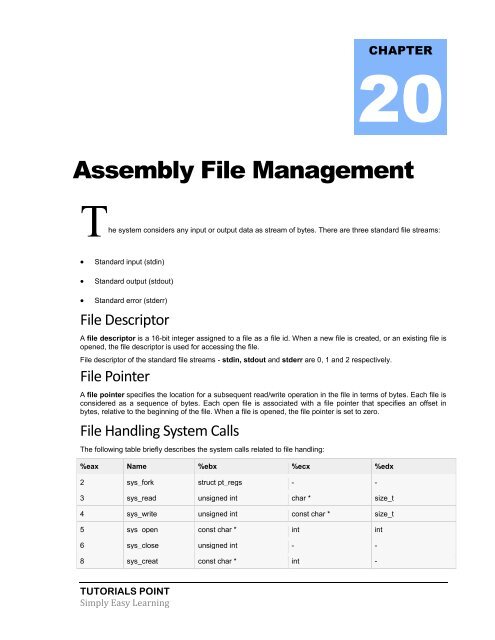assembly_tutorial
assembly_tutorial
assembly_tutorial
Create successful ePaper yourself
Turn your PDF publications into a flip-book with our unique Google optimized e-Paper software.
CHAPTER<br />
20<br />
Assembly File Management<br />
The system considers any input or output data as stream of bytes. There are three standard file streams:<br />
<br />
<br />
Standard input (stdin)<br />
Standard output (stdout)<br />
<br />
Standard error (stderr)<br />
File Descriptor<br />
A file descriptor is a 16-bit integer assigned to a file as a file id. When a new file is created, or an existing file is<br />
opened, the file descriptor is used for accessing the file.<br />
File descriptor of the standard file streams - stdin, stdout and stderr are 0, 1 and 2 respectively.<br />
File Pointer<br />
A file pointer specifies the location for a subsequent read/write operation in the file in terms of bytes. Each file is<br />
considered as a sequence of bytes. Each open file is associated with a file pointer that specifies an offset in<br />
bytes, relative to the beginning of the file. When a file is opened, the file pointer is set to zero.<br />
File Handling System Calls<br />
The following table briefly describes the system calls related to file handling:<br />
%eax Name %ebx %ecx %edx<br />
2 sys_fork struct pt_regs - -<br />
3 sys_read unsigned int char * size_t<br />
4 sys_write unsigned int const char * size_t<br />
5 sys_open const char * int int<br />
6 sys_close unsigned int - -<br />
8 sys_creat const char * int -<br />
TUTORIALS POINT<br />
Simply Easy Learning


